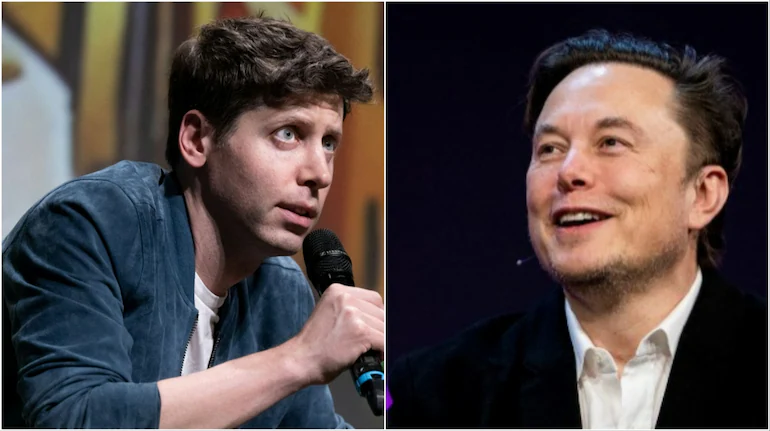OpenAI’s board of directors has firmly rejected an unsolicited $97.4 billion buyout proposal from a consortium led by Elon Musk, emphasizing that the nonprofit entity overseeing the artificial intelligence company is not for sale. The choice cements OpenAI adherence to its mission and also brings tensions within the purposed rivalry of the next-generation machine learning into the open between the singularity research company and its former co-founder.
OpenAI’s Firm Stance Against Musk’s Offer
In a Friday statement, OpenAI chairman Bret Taylor restated the board’s unanimous rejection, saying, “OpenAI is not for sale, and the board has unanimously rejected Mr. Musk’s latest attempt to interfere with his competition,” Ending, with this categorical rejection, OpenAl’s board lays down a definite line against Musk’s ongoing attempts to steer OpenAl in one direction.
Musk, who co-founded OpenAI in 2015 but later launched his own AI startup, xAI, had assembled a high-profile group of investors to back his buyout attempt. The bid included financial support from Valor Equity Partners, Baron Capital, Atreides Management, Vy Capital, Joe Lonsdale’s 8VC, and Ari Emanuel’s investment fund. The ultimate objective of this offer was to re-route OpenAI back to its initial mission a safety-first, open-source organization for the public good, expressed Musk.
Strategic Timing of the Rejection
The rejection of Musk’s offer comes at a crucial time for OpenAI, as the company is engaged in discussions with SoftBank Group Corp. for a new funding round. Reports indicate that OpenAI is pursuing a potential valuation of $300 billion in these discussions. As part of the continuing reshuffling of OpenAI, it is planned that OpenAI, as its non-profit parent, would be granted equity in its for-profit subsidiary, in order to strengthen fundraising activities, without compromising on the mission.
The move of OpenAI from non-profit research lab to for-profit company has been controversial, particularly for Musk. He has repeatedly complained about this change, claiming that it deviates from OpenAI’s founding ideals. The latest attempt to buy OpenAI would have been a landmark change in the landscape of AI industry’s power balance, but the board immediately rejected the suggestion, reasserting its independence.
A Public Rebuff: OpenAI CEO’s Witty Response
Musk’s attempted acquisition was met with a sharp rebuke from OpenAI CEO Sam Altman, who responded humorously on X (formerly Twitter), stating, “No thank you, but we will buy Twitter for 44 billion takeover of Twitter, underscored the tensions between the two tech leaders.
Bret Taylor, who played a key role in overseeing X’s board during Musk’s Twitter acquisition, also emphasized OpenAI’s commitment to its nonprofit mission. He said, “Any reorganization of OpenAI would only make our nonprofit stronger and our mission even greater to make Artificial General Intelligence (AGI) for the good of everybody.
Legal and Ethical Concerns Raised by Musk’s Camp
Marc Toberoff, attorney to Musk’s investor group, commented on OpenAI’s response, stating that the board as fiduciary had an obligation to reasonably and in good faith consider the offer of buyout. They’re just selling it to themselves at a pittance compared to what Musk has actually been providing,” Toberoff said. “Will someone please explain how that benefits ‘all of humanity?’ His comments highlight ongoing debates over the ethical and financial decisions shaping OpenAI’s future.
Musk’s efforts to challenge OpenAI’s restructuring are not new. In June 2024, he filed a lawsuit against OpenAI, only to withdraw it later when internal emails surfaced, showing that he had previously acknowledged the need for substantial revenue generation to support the company’s AI ambitions. However, he refiled the lawsuit in August, accusing OpenAI of prioritizing profit over public good and even alleging racketeering.
A History of Tensions Between Musk and OpenAI
Musk’s tense relationship with OpenAI has existed since 2018, when he left the organization after struggling to get Tesla’s founders to give the green light for Tesla to buy OpenAI. Ever since, he has continued to be an outspoken critic of the company’s changing business and partnership strategy, above all its exclusive partnerships with Microsoft.
However, instead, OpenAI has refuted Musk’s criticisms by insisting that they arise out of a personal grudge, spurred by his own dismissal and aborted takeover bid. Even though the back-and-forth started, OpenAI remains to be restructuring and raising money on a corporate scale and moving further to away from the influence of Musk.
Conclusion
OpenAI’s dismissal of Musk’s $97.4 billion buyout bid represents a firm stance on OpenAI’s path, and its mission to achieve AGI within its current structure. While the battle for control over AI’s future intensifies, OpenAI remains steadfast in its vision, despite challenges from influential figures like Musk. The next few months will likely witness further progress as OpenAI continues to receive further investment and pursues its vision of the future of artificial intelligence for its own sake.
